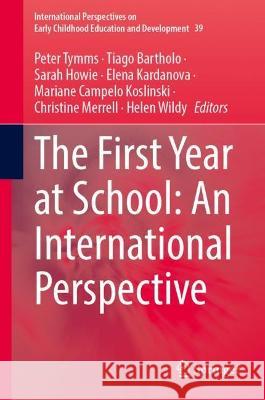The First Year at School: An International Perspective » książka
The First Year at School: An International Perspective
ISBN-13: 9783031285882 / Angielski
The First Year at School: An International Perspective
ISBN-13: 9783031285882 / Angielski
(netto: 575,06 VAT: 5%)
Najniższa cena z 30 dni: 539,74
ok. 16-18 dni roboczych.
Darmowa dostawa!
This book explores an under-researched but vital part of education: the first year at primary/elementary school. The work shows that children’s progress varies enormously from school to school, class to class and child to child. This variation is important because the more progress that children make in that first year of school, the higher their academic attainment at the end of compulsory schooling.The iPIPS (international Performance Indicators in Primary Schools) project, upon which this book is based, has been able to provide deeper insights into some of the key issues within and across different contexts whilst highlighting new and some ongoing issues. Despite all the work there remain unanswered or new puzzling issues which are also explored.We need to know how to improve the education at that stage and, more broadly, we need greater clarity about when children should be taught to read and be introduced to formal arithmetic, in other words, when they should start school. We also need to be clearer about whether, when and how young children should be assessed. The book will suggest some answers but it will raise important questions and dilemmas for which we do not, as yet, have answers.
This book explores an under-researched but vital part of education: the first year at primary/elementary school. The work shows that children’s progress varies enormously from school to school, class to class and child to child. This variation is important because the more progress that children make in that first year of school, the higher their academic attainment at the end of compulsory schooling. The iPIPS (international Performance Indicators in Primary Schools) project, upon which this book is based, has been able to provide deeper insights into some of the key issues within and across different contexts whilst highlighting new and some ongoing issues. Despite all the work there remain unanswered or new puzzling issues which are also explored. We need to know how to improve the education at that stage and, more broadly, we need greater clarity about when children should be taught to read and be introduced to formal arithmetic, in other words, when they should start school. We also need to be clearer about whether, when and how young children should be assessed. The book will suggest some answers but it will raise important questions and dilemmas for which we do not, as yet, have answers.











